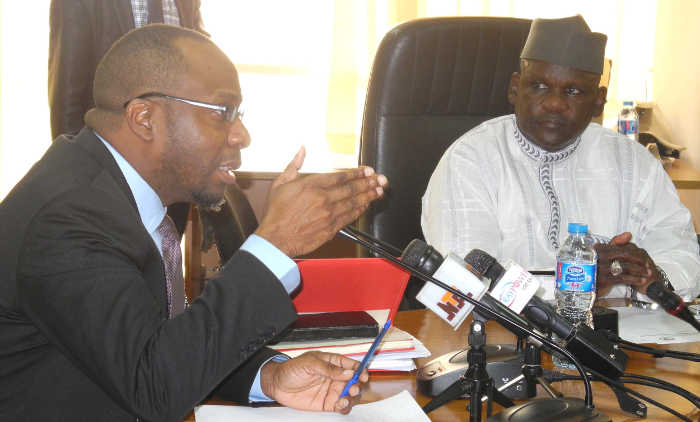- Directors Call for Inclusive ERGP Implementation
The Statistician-General of the Federation and Chief Executive, National Bureau of Statistics, Yemi Kale, and his counterparts in the Institute of Directors, Nigeria, have urged Nigerians to be optimistic in the Federal Government’s Economic Recovery and Growth Plan, saying that the economy has begun to show signs of recovery.
Speaking at a forum of IoD members in Lagos, they, however, said that the implementation of the ERGP should be engaging and involve investors from the private sector.
According to them, more efforts are required to diversify the economy in line with the ERGP 2017 – 2020.
Kale stated that the immediate cause of Nigeria’s recession was traceable to the fall in oil price in mid-2014 and the low fiscal buffers that forced a depletion of the foreign reserves.
“Year-to-date, the Nigerian economy is still growing at a negative rate of -0.18 per cent despite being out of recession; this is due to the dysfunctional economic structure of the country,” he said.
The NBS boss explained that the economy witnessed strong growth in gross fixed capital formation component at 7.64 per cent in the third quarter year-on-year, “thereby sustaining the trend since Q4 2015, while investment share of the Gross Domestic Product stood at 14.09 per cent in Q3 2016.”
“However, the share of investment to GDP, year-to-date of 15.8 per cent, has also been higher than Q1-Q3 2015 put at 15.1 per cent,” he added.
Kale said that though the country was technically out of recession, Nigeria was not yet on the path of economic recovery.
“Therefore, the oil sector and its dysfunctional impact on the economy is a reoccurring decimal in the Nigerian recession trajectory,” he added.
He said that the economy was hinged on three pillars, with the oil sector contributing eight per cent.
Kale added, “The second is the import/consumption driven non-oil sector contributing 52 per cent; while the third pillar, the investment-driven non-oil sector contributes 40 per cent to the GDP.
“However, the hugely consumption nature of the economy makes it extremely vulnerable, based on its exposure to external factors beyond the control of those who manage the economy.”
The President and Chairman of COuncil, IoD, Ahmed Mohammed, said the forum was to enable directors share experiences, brainstorm on the economic challenges, and come up with recommendations for inclusive economic growth plan for the nation.
“We are also constantly in search of knowledge to grow the economy and build capacity of its members,” he added.
At the 2017 Fellows’ evening and investiture of the IoD, Mohammed said that the country recognised that growth in emerging economies of Africa, Nigeria inclusive, was being hampered by poor infrastructure, such as erratic power supply, inadequate and poor state of transport networks, telecommunication deficits, inadequate water supply and waste disposal problems, as well as shortfalls in health and education facilities, among others.
He stated, “Infrastructural development of any country is critical to the economic and social advancement of that country. And it has long become common knowledge globally that governments alone cannot bear the financial burden of providing adequate infrastructure considering the huge capital requirements and the competing demand of this inadequate capital.
“Consequently, integration of private sector investors into the conception, planning, implementation and maintenance of infrastructure has become imperative in Nigeria as it is elsewhere.
“It is against this background that the Federal Government of Nigeria and other state governments have introduced the concepts of PPP in capital development.”

 Billionaire Watch3 weeks ago
Billionaire Watch3 weeks ago
 Startups4 weeks ago
Startups4 weeks ago
 News4 weeks ago
News4 weeks ago
 News4 weeks ago
News4 weeks ago
 Bitcoin4 weeks ago
Bitcoin4 weeks ago
 Naira4 weeks ago
Naira4 weeks ago
 Forex3 weeks ago
Forex3 weeks ago
 Treasury Bills4 weeks ago
Treasury Bills4 weeks ago

























